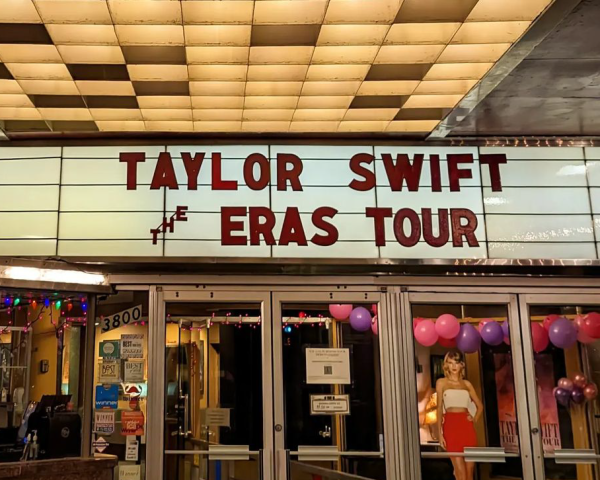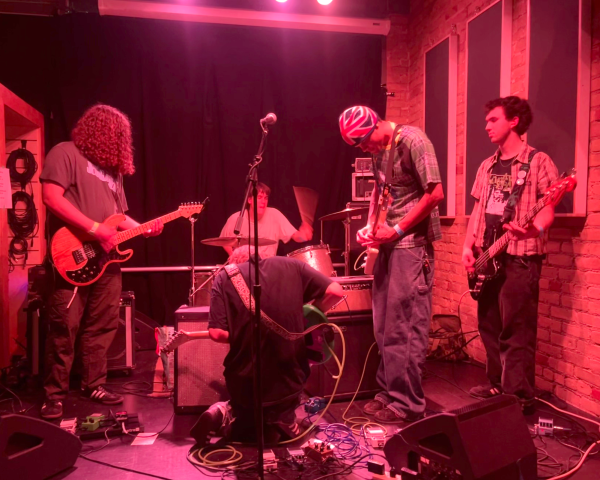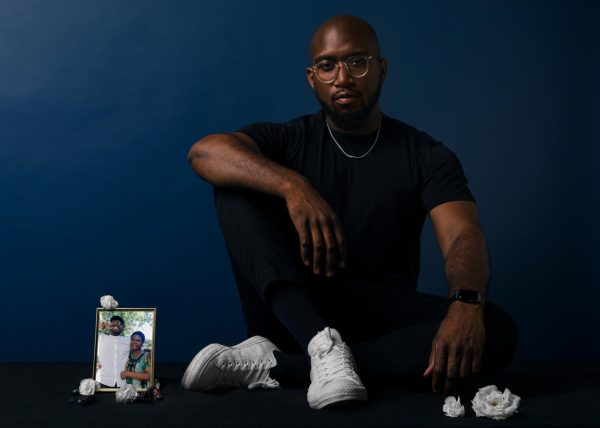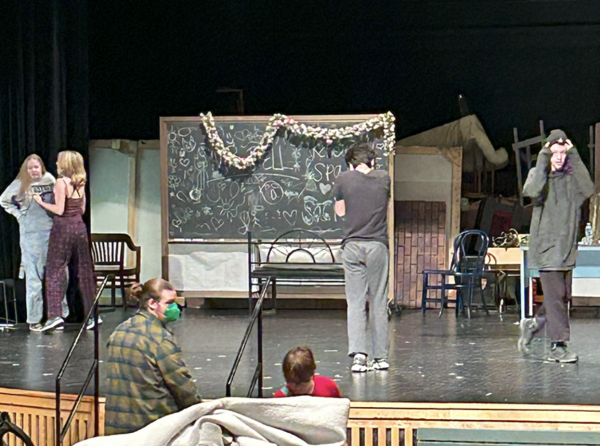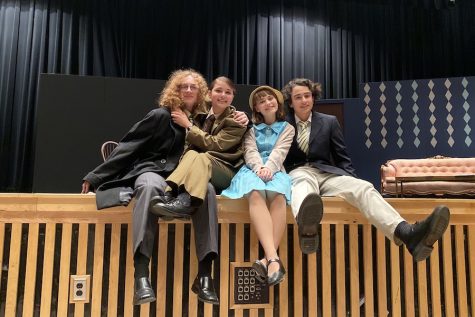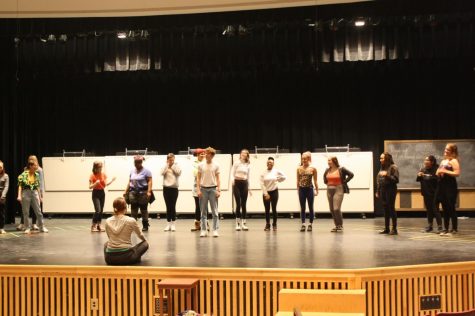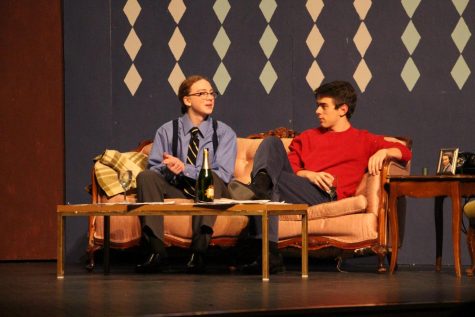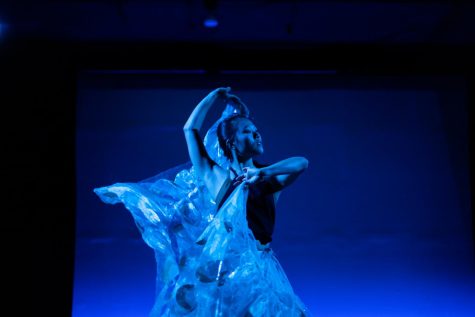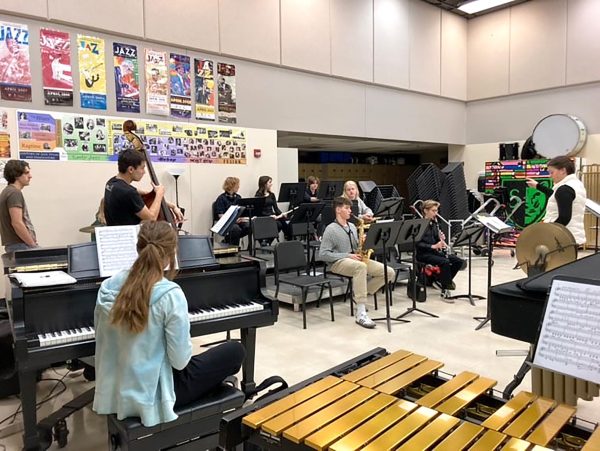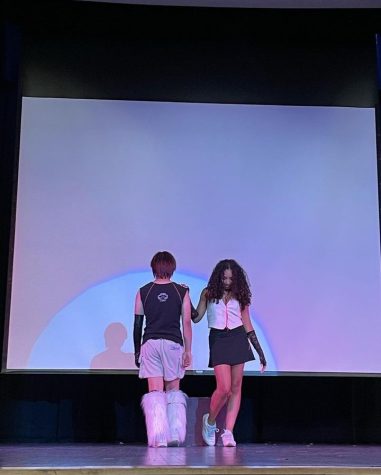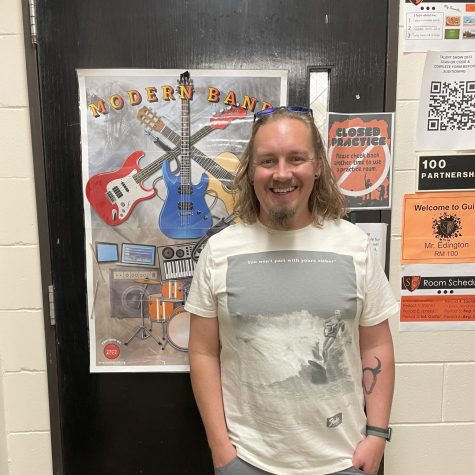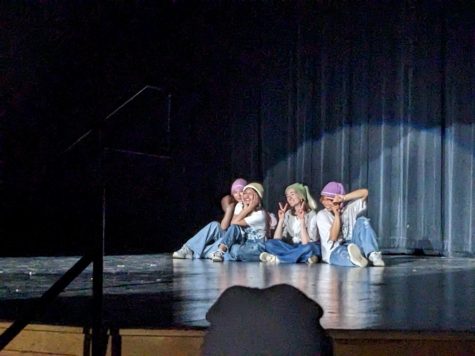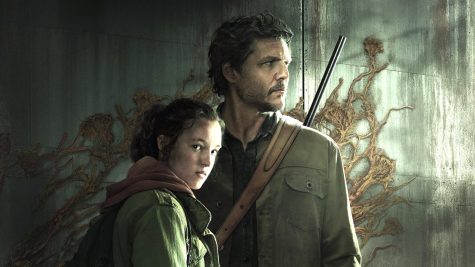Penumbra Theater makes youth “activist artists” through Summer Institute program
Excited murmurs and conversations dimmed as the room darkened and the stage lit up. We open to see a break room, with an old Coca Cola machine, checker board table and hoarded desk. And as the first phone ring of the play sounds with a character responding “Hello, car service”, the Penumbra Theater play Jitney begins it’s exciting, fast-paced performance. The play was directed by Lou Bellamy, the artistic director of Penumbra.
Jitney is a current production being shown at Penumbra. Celebrating their 40th anniversary, Penumbra Theater has made a lasting legacy in the Twin Cities community by empowering and putting to the stage Black voices. Started in 1976 by Lou Bellamy, Penumbra’s aim is to “increase public awareness of the significant contributions of African Americans in creating a diversified American theatrical tradition” according to their mission statement.
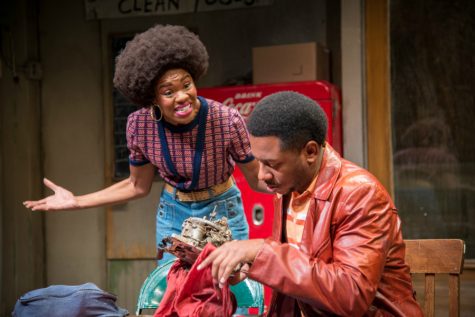
But aside from plays and performances, Penumbra also hosts a youth program, the Penumbra Summer Institute. The Summer Institute is a 4-week program for students is designed to educate and start conversations about race, alongside work with theater mediums and put on a performance at the end of the four weeks
Adam Harris, the Associate Director of Programming and Lead Facilitator at Penumbra Theatre Company, is the primary manager for the Summer Institute: “It is one of the most rigorous and in turn fulfilling experience a young person interested in social justice can have.” he said over an e-mail interview. Harris explained that the program considers its graduates “activist artists.”
Viola Onikoro-Arkell, a junior at South, took part of the program her summer between freshman and sophomore year, and joined again the summer after: “[It was] One of the most tiring things I’ve done in my life, but also the most rewarding.” She explained that everyday the program started off with yoga, then, depending on the weekday, you would either work with your randomly assigned ensemble with whom you would create a play at the end of the program, or go to classes and seminars.
On Onikoro-Arkell’s first day, all the students were put with their ensemble – which consisted of all the first-year students, about 20 in all – and were asked by H. Adam Harris, the counselor for her group, to partner up with someone else and tell them your greatest loss in life. “We came back into a circle, and we were like ‘we’re not going to have share these with the greater group’ and [H. Adam Harris] was like ‘oh no of course not, your partner is going to tell it for you,’” she said.
Ray Johnson Jensen, also a South junior, participated in Penumbra’s Summer Institute the summer going into tenth grade. Being an active part of South theater department is what brought Penumbra to Johnson Jensen’s attention: “It was recommended by the theater department here, and I knew people that went to it before, so I decided to go,” he explained.
The Penumbra Summer Institute started 27 years ago, which began as a 1-2 week theater intensive program. But the program has since evolved to a more diversified focus on social justice – race, gender, sexuality, religion, class and ability. “When you put a diverse amount of students in a space, give them tools, you’d be amazed at the conversations we have.” explained Harris. “It’s important for young people to be taught by people who look like them. People that they can envision themselves becoming.”
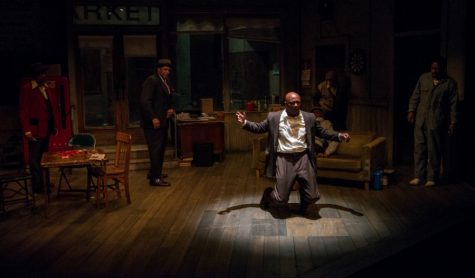
Photo courtesy of: Allen Weeks
Rahila Coats, a Summer Institute alum, began her first year at Penumbra in 2013. “The classes ranged from Critical Theory with Sarah Bellamy to African Based Movement with Sister Patricia or Marciano Dos Silva Santos,” she explained, over an e-mail interview. “Many penumbra summer institute alumni including myself have continued to perform social justice pieces around the twin cities and even outside of Minnesota to this day.”
For many, there were also difficult times during the Summer Institute. The rigorous conversations could be mentally draining and emotionally straining. Although rewarding, Onikoro-Arkell described how emotionally straining the program was at times: “In this kind of work, social justice and all that jazz, [the program is] literally exhausting…It’s heartbreaking, it’s so much at once, it’s so draining, and it’s so important to remember that you have to keep going because it’s not over.”
Coats shared similar feelings: “Penumbra asks for you to reflect on your own experience and purpose in the world. These introspective topics are very emotionally demanding, but that is precisely what helped us create such strong pieces.” Coats felt that the institute helped her grow immensely: “I learned the importance of sharing my personal truth so that others can be comfortable to share their own. Even though the program was a few weeks long each summer, I’m blessed enough to hold these memories forever.”
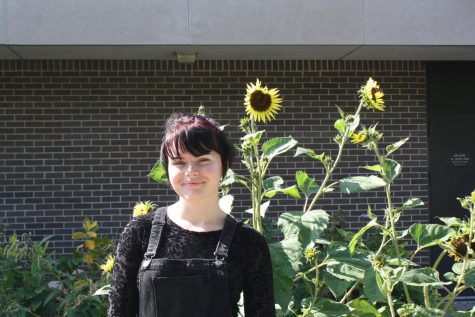
From slam poetry to women’s basketball, senior Soline Van de Moortele has seen it all. In her third year as a staff member she serves as the News and...

